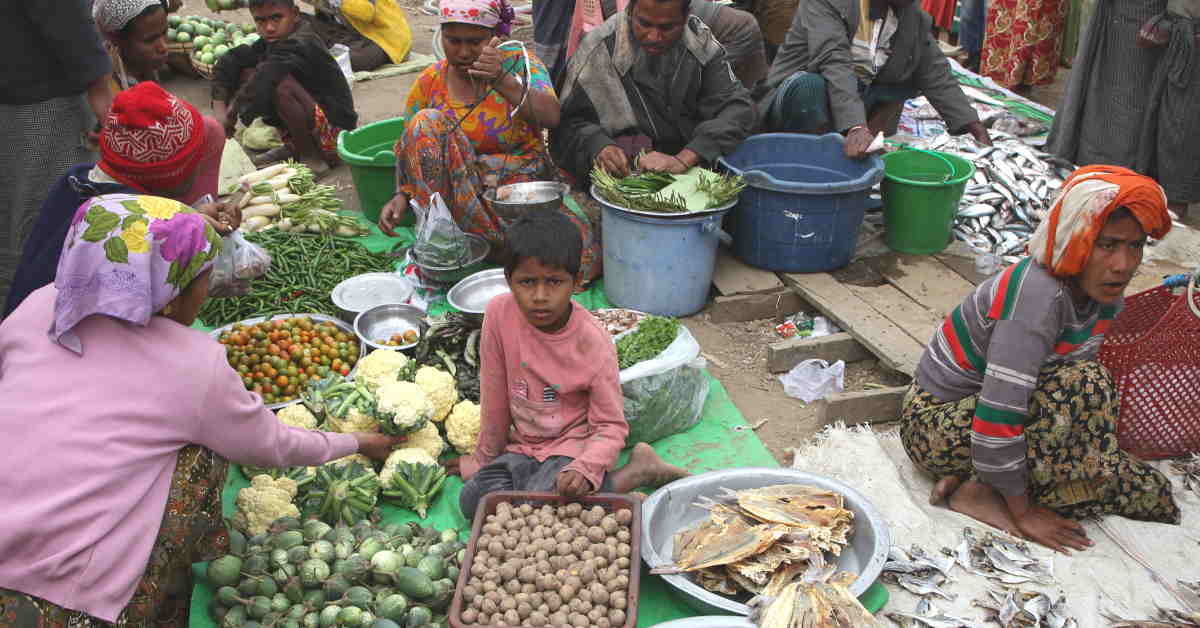Myanmar hit out Monday at a genocide case brought against it by The Gambia for alleged persecution of Rohingya Muslims, urging the United Nations’ (UN) highest court to drop the claim on legal grounds.
Banjul dragged Myanmar before the International Court of Justice (ICJ) in 2019, accusing the predominantly Buddhist country of genocide against the Rohingya Muslim minority after a bloody 2017 military crackdown.
When the case opened in December 2019 Aung San Suu Kyi personally represented Myanmar at the Hague-based ICJ, but she was ousted as the Asian country's civilian leader in a military coup last year.
The Nobel peace laureate, who faced criticism from rights groups for her involvement in the case, is now under house arrest and on trial by the same generals she defended in The Hague.
"Myanmar is... not seeking to impede the judicial process of the court," its agent Ko Ko Hlaing told the judges in the imposing courtroom at the Peace Palace in The Hague.
"On the contrary it is seeking to answer the proper administration of justice," Myanmar's international cooperation minister said.
EU Sanctions
Both Hlaing, who was in court and Myanmar's attorney general Thida Oo, who was attending virtually, have already been hit with United States (US) sanctions over the coup.
And on Monday the European Union (EU) added 22 officials from the junta, taking the total to 65, and four companies tied to the regime, making 10 overall, to the bloc's sanctions list.
Among those targeted were the ministers for investment, industry and information, officials at the election commission and senior members of the military.
"The European Union is deeply concerned by the continuing escalation of violence in Myanmar and the evolution towards a protracted conflict with regional implications," the bloc said in a statement.
"Since the military coup, the situation has continuously and gravely deteriorated."
'Proxy Applicant'
Christopher Staker, another lawyer for Myanmar, said the ICJ did not have the jurisdiction because it was not a case brought by two states, as required by the ICJ's statutes.
"The application is inadmissible because the real applicant in these proceedings is the Organisation of Islamic Cooperation (OIC)," Staker said.
He accused The Gambia of "not acting in its own rights... but stepping in on behalf... of the OIC," referring to the 57-member body set up in 1969 to represent global Muslim interests.
It was only after the OIC proposed that the case should be brought against Myanmar at the ICJ that The Gambia agreed to step forward, not the other way around, Staker argued.
Set up after World War II, the ICJ rules in disputes between states, and bases its findings mainly on international treaties and conventions.
"The OIC is an international organisation, not a state," Staker noted.
"It cannot be possible for an international organisation to bring a case before the court by using a state as a proxy applicant," he said, adding "The Gambia has never objected to this."
The ICJ made a provisional order in January 2020 that Myanmar must take "all measures" to prevent the alleged genocide of the Rohingya while the years-long proceedings are under way.
While its rulings are binding, the court has no real means to enforce them.
Bloody Crackdown
Gambia will make its counter-arguments on Wednesday.
Around 850,000 Rohingya are languishing in camps in neighbouring Bangladesh while another 600,000 Rohingya remain in Myanmar's southwestern Rakhine state.
The Rohingya case at the ICJ has been complicated by the coup that ousted Suu Kyi and her civilian government and triggered mass protests and a bloody military crackdown. More than 1,500 civilians have been killed, according to a local monitoring group.
Suu Kyi now faces trial herself in Myanmar on a raft of charges that could see her jailed for more than 150 years.
Ahead of the hearing, the shadow "National Unity Government" (NUG) dominated by lawmakers from Suu Kyi's ousted party said it, not the junta, "is the proper representative of Myanmar at the ICJ in the case".
It also rejects Myanmar's preliminary objections, saying the hearings for these should be cancelled and the court should quickly get down to the hearing of the substantive case.
The NUG holds no territory and has not been recognised by any foreign government, and has been declared a "terrorist" organisation by the junta.
The Gambia accuses Myanmar of breaching the 1948 UN genocide convention.
Banjul says its case is backed by the 57-nation OIC, Canada and the Netherlands.
